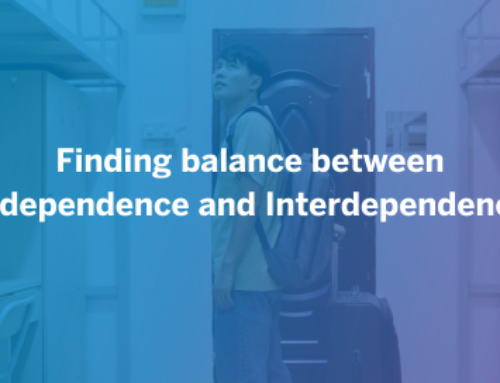
The traditional perception of a teacher’s role as a trained educator, paper grader, curriculum designer, and role model falls drastically short. The true nature of this position is nothing short of astonishing. If job descriptions on platforms like Indeed and LinkedIn included the difficult truths of being a teacher, it’s hard to imagine anyone except the most resilient individuals in my life showing an interest in such a career. The degree of direct exposure to the collective struggles, addictions, and traumas of our youth cannot be overstated. Many things that a student can hide from their parents, coaches, or therapists have no chance of staying concealed during the seven hours they spend at school each day. Consequently, the role of each teacher is in a constant state of flux.
We have frequent conversations with teachers who pull us aside before a presentation to discuss a student who attends class under the influence every day. They have spoken to the student and perhaps encouraged honesty and support, but that’s often as far as they are able to go. They might know enough to report the student, potentially resulting in expulsion or suspension. Moreover, they tell us that they have observed the student slowly disengaging. They witness their students, with whom they develop crucial relationships, self-destruct without support or intervention. These stories become particularly severe in situations where the school’s reports to parents were met with signs of indifferent and disengaged parenting.
The teacher does not have the luxury of looking away. They continue to grade and assess the student’s disappointing grades and witness their dishonesty and struggle. They extend every possible inch of support within their means. These recurring stories are deeply poignant, yet they merely scratch the surface. Teachers frequently bear witness to students descending into a path of self-destruction. They observe the initially well-intentioned student gradually adopt a rebellious persona. They witness the disengaged student succumb to addiction. These conversations with teachers reveal the immense dedication they invest in guiding and motivating these students. Despite their limited resources, many of them adamantly refuse to turn a blind eye and employ every tool in their arsenal. Sometimes, they can make an unbelievable difference in their students’ lives. Other times, they have to watch as a student they were starting to guide and support switches schools for the third time in a year.
My high school teachers saw everything. When my parents were puzzled by my academic struggles, my trigonometry teacher noticed my waning interest, defiant attitude, disengagement, and lack of effort. She had meetings with me to encourage me to persevere and regain my full potential. However, over the course of weeks and months, I distanced myself from her efforts, arriving high to class and associating with rebellious and troublesome students. Amidst these behavior patterns, any teacher at my high school could have, with relative accuracy, identified the students who were beginning to use substances.
Although they lacked the resources or authority to directly intervene and redirect my path, they played a vital role in fostering resilience among many of my peers. This aspect of teaching often goes unnoticed—the modeling of caring and inspiring behavior, the path of inquisitive education, and personal growth. Some of my peers who distanced themselves from me, and others found guidance from the exceptional teachers who surrounded us during our formative years. With the deck constantly stacked against them, I have witnessed, time and time again, the incredible resilience and effort put forth by our educators.
A legitimate comprehension of the long-term impact of having caring and engaged adults in our lives reveals the true significance of these dedicated individuals. Although these teachers may not have the ability to instantly alter a student’s trajectory, it is those individuals who demonstrate enough care to notice and make an effort that leaves an enduring mark, even if it initially goes unnoticed. Reflecting on those who guided me towards the best parts of myself today, I can discern their influence in my recovery, my decision to embrace personal growth, offer support to others and cultivate a love for learning. I realize that I didn’t develop this mindset in isolation; it was instilled in me by my trigonometry teacher, who couldn’t bear to witness my failure, by teachers whose unwavering enthusiasm ignited the inspired side of me that my addiction sought to suppress, and by those who embraced a lifestyle prioritizing the growth of others.
Regarding our prevention efforts, at LSIS, we recognize the tremendous power teachers possess. Firstly, due to their constant exposure to their students, but also because of the dedication we observe in those we collaborate with. They engage in lengthy conversations with us about each child they hope will receive the message of my presentation. They worry deeply about the children every single day, concerned that they may end up following the same path as many others before them. We firmly believe that one aspect of “early detection” is to encourage consultation with teachers. These invested educators, who have witnessed years of social dynamics within a grade, often possess a keen eye for various aspects of a child’s life.
Primarily, we at LSIS would like to honor and celebrate the unwavering dedication and profound impact of our teachers. They go beyond the curriculum, often serving as the sole role models in students’ lives. Witnessing the struggles of children facing addiction and rebellion, they offer a glimmer of hope through their words of encouragement. However, we also acknowledge the immense burden these teachers carry, lacking the necessary training to handle vicarious trauma, practice self-care, conduct risk assessments, or provide counseling. Even trained counselors have expressed to us the need for additional formal training to address the traumatic events and adverse childhood experiences they encounter. If counselors are calling for more training, one can only imagine the strain on our teachers. By recognizing the exceptional work of our teachers, our goal is to inspire greater support and recognition. As a part of this effort, we have begun to provide specially designed vicarious trauma support and care boxes for our school professionals. We strive to encourage additional action and empower these individuals who bear the responsibility of caring for and inspiring our children.
By: Danny Z
Danny is a in house LSIS Prevention Speaker.








Leave A Comment